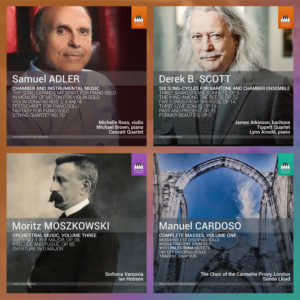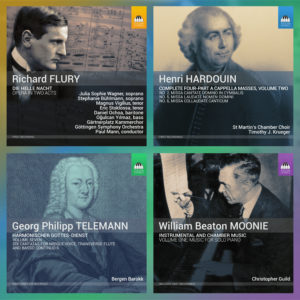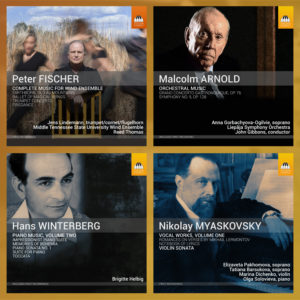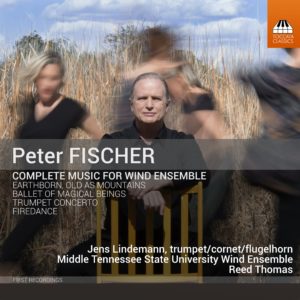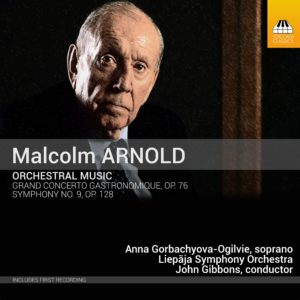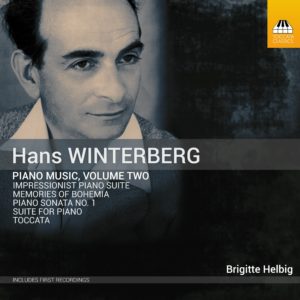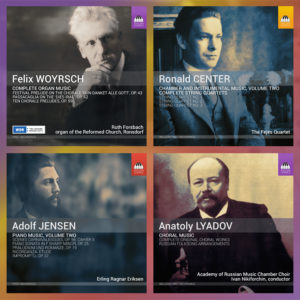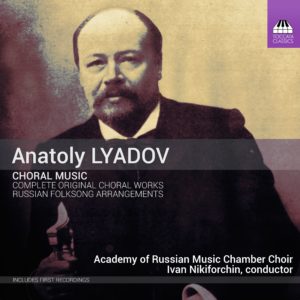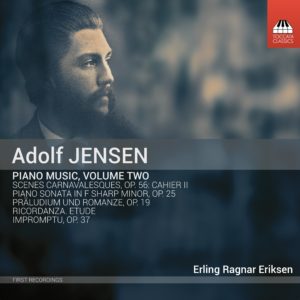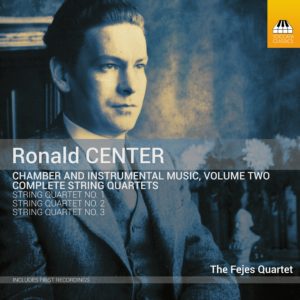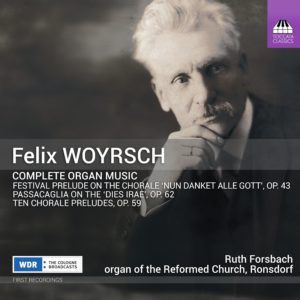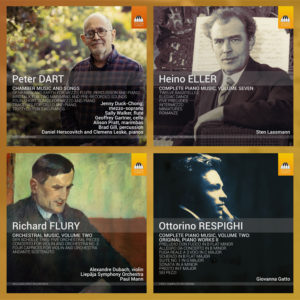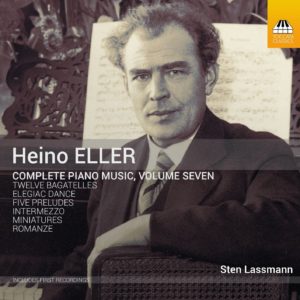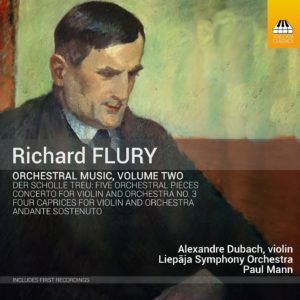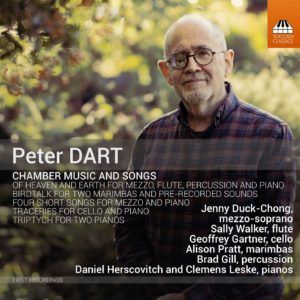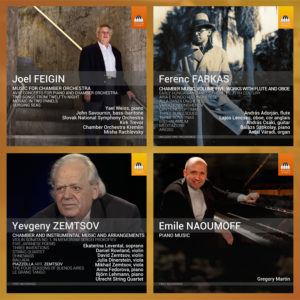Search Results for "Space Wolf: The First Omnibus mp3 torrent" – Page 50
December 2021 Bundle
Included in this bundle:
November 2021 Bundle
Included in this bundle:
October 2021 Bundle
Included in this bundle:
Peter Fischer: Complete Music for Wind Ensemble
The four works for symphonic wind band composed by Peter Fischer – born in 1956, across the bay from San Francisco, in Martinez, California – are almost textbook examples of American eclecticism, mixing inner-city vibrancy with a sense of the timeless outdoors, bringing in flavours from jazz and rock and moving easily between vigorous dance-rhythms and sultry nightscapes. Dance, indeed, lies at the heart of most of this music, which gives the mambo, the tango, the tarantella and the waltz a new and spirited twist amid echoes of Stravinsky, Revueltas and Bernstein.
Jens Lindemann, cornet (track 2), flügelhorn (track 3), trumpet (track 4)
Middle Tennessee State University Wind Ensemble
Reed Thomas, conductor
Malcolm Arnold: Orchestral Music
These two works present two sharply contrasting sides of Malcolm Arnold: his limitless resources of knockabout fun, and a sense of existential tragedy. But each score presents its own surprises: the jocularity of the Grand Concerto Gastronomique – written for a Hoffnung concert – conceals some seriously good (though not seriously serious) music; and the delicately scored Ninth Symphony, written after five years when its composer had, in his own words, ‘been through hell’, irradiates its emotional restraint and elegiac tone with moments of light and warmth.
Anna Gorbachyova-Ogilvie, soprano (Track 5)
Liepāja Symphony Orchestra
John Gibbons, conductor
Hans Winterberg: Piano Music, Volume Two
The tale of Hans Winterberg (1901–91) is a strange one. A survivor of the Terezín concentration camp, where he had been interned as a Czech Jew, he settled in Munich after the War as a German citizen, and his music enjoyed a number of broadcasts – but with his death his estate disappeared into a legal limbo, emerging only in 2015. This second album of his piano music reveals an unusual and individual voice, an idiosyncratic blend of Janáček, Ravel, Schoenberg and other mid-twentieth-century masters, animated by a hard-edged, freewheeling energy and grim humour reminiscent of his close contemporary, Nikos Skalkottas.
Brigitte Helbig, piano
September 2021 Bundle
Included in this bundle:
Anatoly Lyadov: Choral Music
Lyadov’s handful of orchestral works have become concert favourites, but his choral music is as good as unknown. It falls into three main categories: religious chants, folksong arrangements and original compositions. All three confirm Lyadov’s status as a kind of Fabergé of music: they blend exquisite craftsmanship and delicate beauty.
The Academy of Russian Music Chamber Choir
Ivan Nikiforchin, choirmaster and conductor
Adolf Jensen: Piano Music, Volume Two
Adolf Jensen (1837–79) is one of the major figures of German Romanticism, the composer of a large corpus of songs and piano music. Jensen’s musical language fuses the heritage of Schumann, Chopin and Liszt into an individual style distinguished by its melodic and lyrical appeal, and yet he has been almost entirely forgotten. This second in a series of recordings of his music hopes to restore his name to circulation.
Erling Ragnar Erksen, piano
Ronald Center: Chamber and Instrumental Music, Volume Two
Ronald Center (1913–73) is sometimes described as ‘the Scottish Bartók’, and his music does indeed capture some of the stark, wild energy of the Scottish landscape in a style of Bartókian asperity. These three string quartets show him, in his northeast corner of Scotland, to have been fully conversant with the quartets being written around the same time by Barber, Britten and Shostakovich, but their direct manner, terse expression, wiry humour and roots in Scottish folk-music ensure that Center is his own man.
The Fejes Quartet
Tamás Fejes, violin
Yoan Hlebarov, violin
Theodore Chung Lei, viola
Balázs Renczés, cello
Felix Woyrsch: Complete Organ Music
The German composer Felix Woyrsch was born in 1860 in Troppau (then the capital of Austrian Silesia and now, as Opava, in the Czech Republic) but became prominent in the musical life of Altona, now part of Hamburg, as organist, choirmaster and teacher; he died there in 1944. Woyrsch’s late-Romantic organ music, with distant roots in Bach’s counterpoint, inhabits a harmonic world somewhere between Brahms and Reger, its dark colours reflecting the upheavals in the times through which he lived.
Ruth Forsbach, organ of the Reformed Church, Ronsdorf
August 2021 Bundle
Included in this bundle:
Heino Eller: Complete Piano Music, Volume Seven
The piano music of the Estonian composer Heino Eller (1887–1970), a total of 206 works, is not only the largest part of his output: it is also the largest body of works in Estonian classical music. But most of these pieces are unknown, even though the best of them are original contributions to the piano repertoire of the twentieth century, with Eller’s sensitive lyricism underpinned by gentle humour and an occasional epic tone. This seventh volume brings music from half a century, from 1912 to 1961– mostly miniatures but each of them full of atmosphere and personality.
Sten Lassmann, piano
Richard Flury: Orchestral Music, Volume Two
This second volume of orchestral music by the Swiss composer Richard Flury (1896–1967) brings works from across his career. A suite drawn from an early Festspiel – a community pageant – opens with a march of Elgarian swagger and continues with a mix of charm and substance. Flury was a gifted violinist, and his Third Violin Concerto, written at the height of the Second World War, is virtuosic and lyrical in equal measure, its unashamed Romanticism perhaps an escape from troubled times. The four late Caprices for violin and orchestra form a concertante serenade in all but name; and one of his very last pieces was a dark and moving tribute to a musician friend, the slow movement of a suite he did not live to finish.
Alexandre Dubach, violin (Tracks 6 – 9, 11 – 13)
Liepāja Symphony Orchestra
Paul Mann, conductor
Peter Dart: Chamber Music and Songs
Painters sometimes talk about the intensity of the light they encounter in Australia. Peter Dart, born in Sydney in 1953, brings something of that brightness to his compositions, which are further animated by buoyant rhythms and a lively sense of humour, even mischief. They are, at the same time, anchored in a secure command of counterpoint, and given a timeless quality by his fondness for modal harmony. Most important of all, the technical mastery that gives these works their surefooted appeal is suffused with straightforward human warmth.
Daniel Herscovitch, piano (Tracks 1 – 12, 14 – 17)
Clemens Leske, piano (Tracks 1 – 3)
Jenny Duck-Chong, mezzo-soprano (Tracks 4 – 7, 14 – 17)
Sally Walker, flute (Tracks 15 – 16), piccolo (Tracks 14 – 17)
Geoffrey Gartner, cello (Tracks 8 – 12)
Brad Gill, percussion (Tracks 14 – 17)
Alison Pratt, marimbas (Track 13)
Stay In the Know
JOIN THE TOCCATA NEWSLETTER
"*" indicates required fields
By visiting our site, you agree to our privacy policy regarding cookies, tracking statistics, etc.
